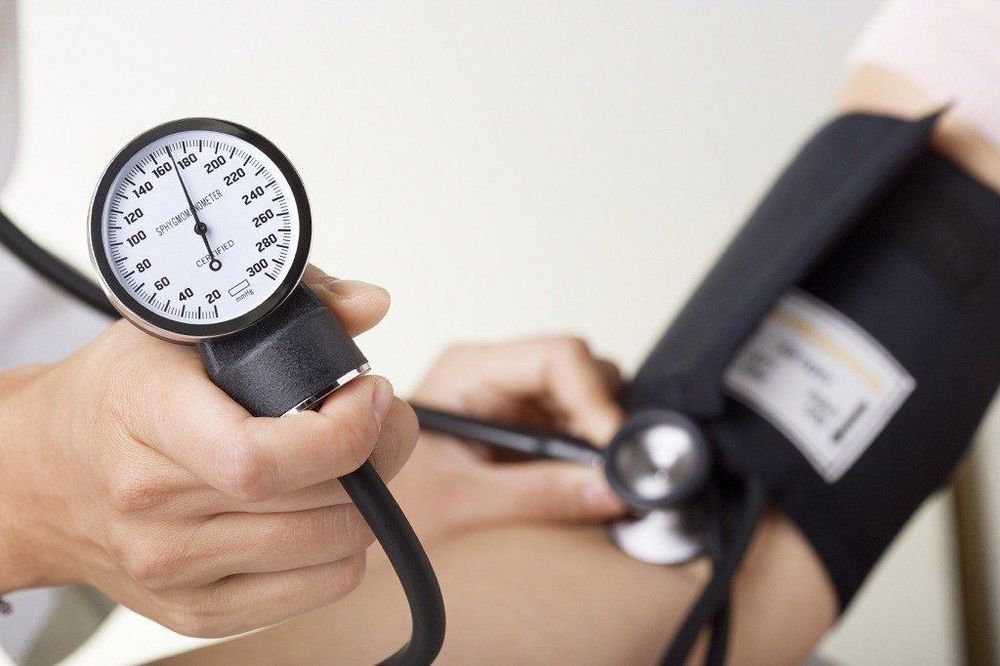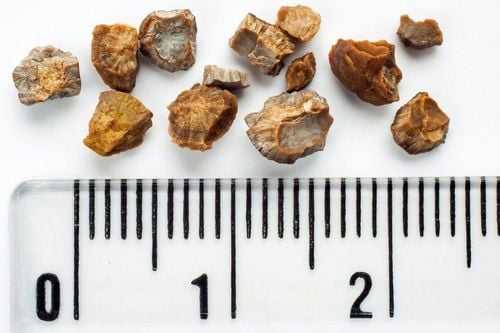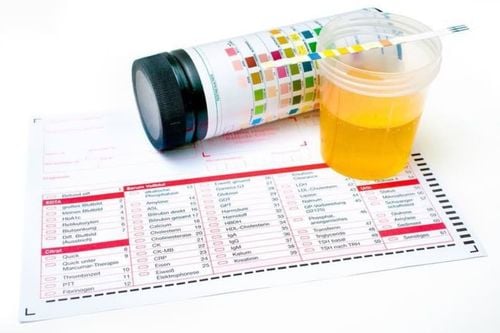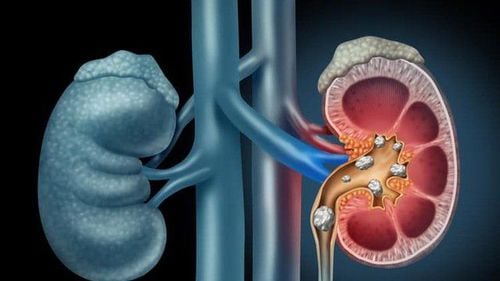Urea is the final product of protein metabolism in the human body and is excreted through the kidneys. If a blood test shows that the BUN level is higher than normal, it indicates that the kidneys are not functioning properly, or other underlying disorders.
1. The urea cycle
The protein that humans consume daily is called exogenous protein. After entering the body, it is converted by digestive proteases into amino acids. When amino acids continue to be metabolized, they produce NH3 and CO2. Urea is the end product of protein metabolism and is transported from the liver to the blood, then to the kidneys and excreted in the urine.
Urea is constantly supplemented into the body daily through protein-rich foods such as meat, fish, eggs, and milk...
Typically, an adult excretes about 30g of urea per day through urine and a small amount through sweat. When the body is healthy, the ability to excrete urea is good and the blood urea level is within the normal range.
Urea is relatively non-toxic, even when its concentration in the blood is quite high. However, if you want to assess the filtering capacity of the kidneys, doctors often rely on the blood urea level, the higher the index, the poorer the kidney function and vice versa. If a blood test shows that the amount of urea in the blood is higher than normal, it indicates that the kidneys are having problems.
2. What is considered a high blood urea level?
Typically, the blood urea level is between 2.5 - 7.5 mmol/L. If this level exceeds the normal range, it indicates that the kidneys are functioning poorly and are more susceptible to damage, which can lead to kidney failure over time.To produce an accurate diagnosis, doctors will order a blood urea nitrogen test to measure the amount of urea in the blood, if the urea level is higher than normal, the doctor may order additional tests to evaluate kidney function.
Cases of low blood urea levels are rare and may occur in patients with severe liver disease or malnutrition and are not considered a cause or used to diagnose or monitor this disease. Additionally, low urea levels may occur in pregnant women, especially in the later stages of pregnancy, as the fetus uses a large amount of the mother's protein for its growth.
3. Causes of elevated blood urea nitrogen (BUN)

Blood urea nitrogen (BUN) test, also known as a urea test. Patients with acute or chronic kidney disease often have elevated blood urea nitrogen (BUN) levels due to impaired kidney function. However, in reality, in addition to patients with kidney disease, there are many factors that can cause elevated blood urea nitrogen (BUN) levels, such as:
Mercury poisoning;
Unhealthy diet with excessive protein intake;
Due to kidney failure; hydronephrosis caused by kidney stones, glomerular damage, and tubular damage;
Urinary tract obstruction, anuria, oliguria;
Increased protein catabolism due to fever, starvation, malnutrition, burns, and neoplastic diseases
Gastrointestinal bleeding leading to severe infection;
Use of antidepressants, diuretics, antibiotics, and contrast media…
4. Signs of elevated blood urea nitrogen (BUN)
When blood urea nitrogen (BUN) levels are elevated, patients often experience symptoms such as:
Poor appetite, bloating, dizziness, headache, fatigue, and insomnia;
Black tongue, ulcers in the throat and oral mucosa;
Nausea and diarrhea;
Ammonia-like breath, and respiratory disturbances;
Decreased body temperature;
Hypertension, rapid and weak pulse;
End-stage kidney disease may lead to circulatory collapse;
In severe cases, patients may experience coma, seizures due to cerebral edema, constricted pupils, and decreased pupillary light reflex;
Physical examination does not reveal focal neurological signs or meningeal signs;
Retinal bleeding, bleeding under the skin, and mucosal bleeding.

5. What to do when blood urea levels are elevated?
To determine if blood urea levels are high or low, patients should go to a reputable medical institution with modern equipment to perform basic tests to obtain accurate concentrations, helping to determine kidney function and take timely treatment measures.
If the blood urea level is high, the doctor will advise the patient to pay attention to kidney function, if there are problems such as acute or chronic nephritis, polycystic kidney disease, hepatorenal syndrome due to leptospira, hydronephrosis due to kidney stones, kidney tuberculosis..., it is necessary to treat them completely.
In addition, to limit the increase in blood urea levels, patients need to rebuild a scientific diet, balance the amount of protein intake into the body, and get adequate rest. Avoid using drugs that can increase blood urea levels.
Please dial HOTLINE for more information or register for an appointment HERE. Download MyVinmec app to make appointments faster and to manage your bookings easily.













